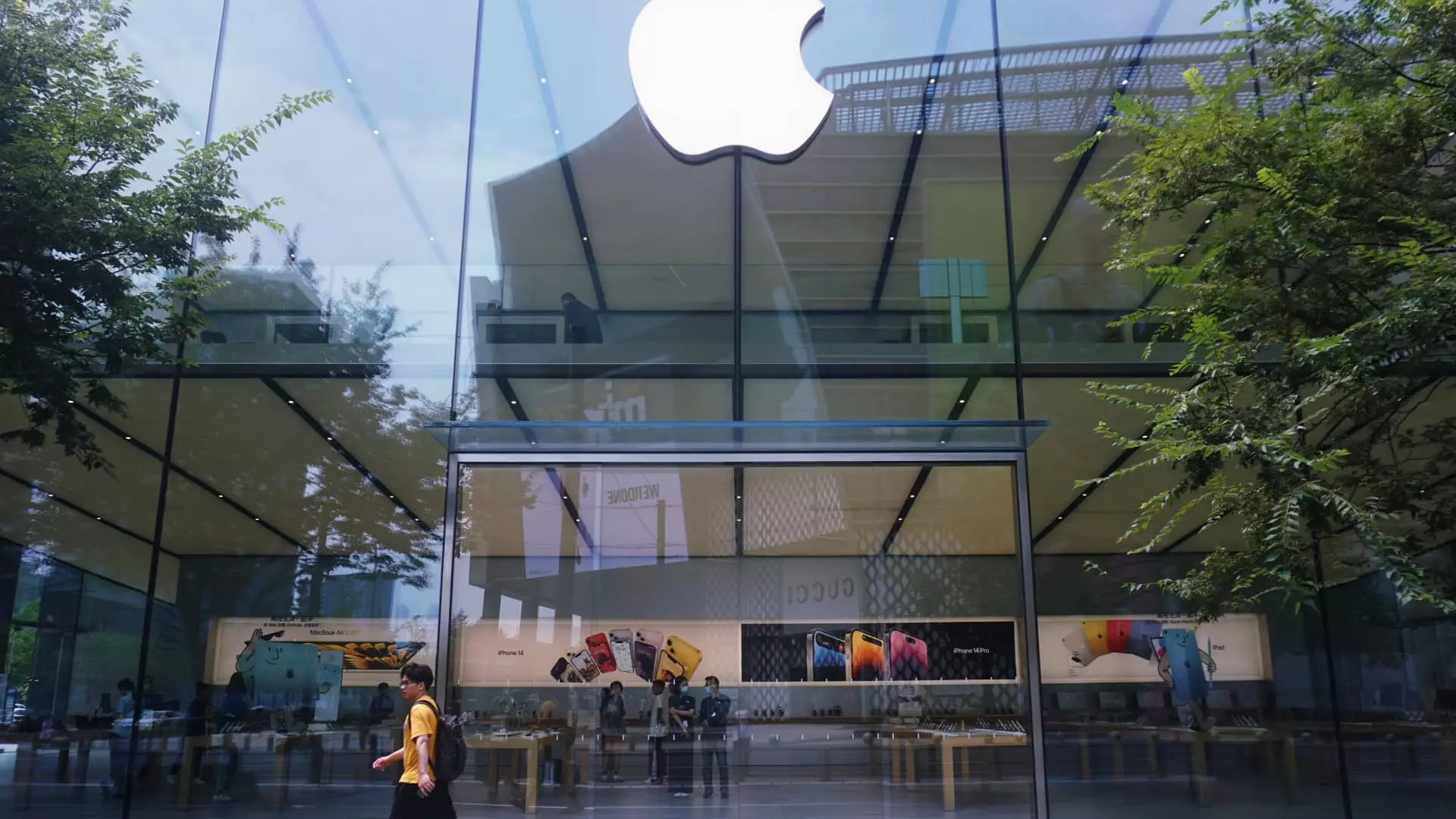In recent years, China’s role as a critical player in global technology manufacturing has become undeniable. Companies like Lens Technology symbolize this shift—they’re not merely manufacturing glass; they represent a strategic pillar that could redefine the future of high-end consumer electronics. As Western companies, particularly Apple, contemplate entering the foldable smartphone market, the dependence on Chinese suppliers has deepened, raising questions about economic sovereignty, innovation dependency, and geopolitical leverage. While some might see this as a pragmatic move rooted in cost efficiency and manufacturing scalability, a more critical perspective reveals a risky game of over-reliance that could undermine Western technological sovereignty in the long run.
The recent IPO of Lens Technology underscores this paradigm shift. By raising nearly 611 million USD in what was Hong Kong’s busiest day of listings, the company’s financial momentum signals growing international investor confidence in Chinese tech manufacturing firms poised to benefit from Apple’s possible entry into foldable devices. The strategic importance of this move cannot be overstated: it cements Chinese firms’ roles as indispensable suppliers in the global supply chain—an uncomfortable but real reflection of what the future might look like if Western companies become increasingly dependent on foreign manufacturing hubs replete with their own geopolitical interests.
However, such dependency opens Pandora’s box. While the immediate benefits for companies like Lens Tech—such as increased R&D funding and overseas expansion—look promising on paper, they also usher in potential vulnerabilities. Relying heavily on Chinese infrastructure leaves Western brands exposed to supply chain disruptions, political tensions, and even covert interference. The assumption that multiple factories in Vietnam, Mexico, and China will guarantee resilience is increasingly optimistic, not realistic. Global stability and supply chain security are more fragile than ever, and over-reliance on Chinese manufacturing might eventually backfire, especially if geopolitical conflicts escalate.
Innovation or Commercial Opportunism? The Risky Promise of Foldable Tech
The buzz surrounding Apple’s potential foray into foldable smartphones is both exciting and controversial. On one hand, it represents an opportunity for consumers to experience cutting-edge innovation. On the other, it exposes a broader issue within the tech industry: the obsession with having the latest smart device as a symbol of progress, often at the expense of sustainable growth and debate over true innovation. The investment in foldable screens and ultra-thin glass—mostly supplied by companies like Lens Tech—may be driven more by market pressure and the allure of future profits than by genuine technological breakthroughs.
Analysts like Ming-Chi Kuo have hinted that Apple might launch a foldable device as early as next year, but how much of this is speculation fueled by supply chain leaks and insider reports? The lack of official confirmation hints at the strategic ambiguity Apple prefers to maintain, savvy in wielding supply chain leaks as leverage. Yet, reliance on Chinese suppliers for these innovative materials—such as the ultra-thin glass critical for foldable screens—cements a dependency that could either accelerate technology adoption or stifle disruptive innovation elsewhere.
Furthermore, the push toward foldable technology appears more aligned with capturing market share than addressing fundamental consumer needs. The economics of foldable phones, with their complex manufacturing and fragile components, raise doubts about their long-term viability. Are manufacturers truly solving the pressing issues of durability and cost, or are they merely employing “gimmickry” to sustain consumer interest? This delicate balance between technological progress and commercial opportunism highlights a key risk: the industry may be chasing after a short-term sales spike rather than fostering sustainable, meaningful innovation.
Geopolitical Implications of Reliance on Chinese Tech Giants
The increasing dependence on Chinese tech manufacturers like Lens Tech has significant geopolitics embedded in its fabric. While market forces may seem to dictate the current trends, the broader strategic implications suggest a shift in global power dynamics. The rise of Chinese firms leveraging IPOs, investor backing from hedge funds like Steve Cohen, and foreign factories in Vietnam and Mexico illustrate a carefully orchestrated attempt to diversify manufacturing nodes. Yet, the core issue remains—how long can the West afford to depend on Chinese tech infrastructure without ceding control over critical technologies?
This dependency is not merely economic but political. China’s government has historically used its industrial leverage for strategic advantages, whether through state-backed companies or diplomatic influence. The presence of a company like Lens Tech, servicing a multinational like Apple, raises concerns about technology transfer, intellectual property security, and the possibility of Beijing favoring domestic champions in a future geopolitical conflict. As Western nations debate tariffs and technological sanctions, companies locked into Chinese supply chains find themselves caught between economic pragmatism and strategic vulnerability.
It’s not hyperbole to suggest that an overreliance on Chinese manufacturing creates a fragile foundation for Western innovation. The push to expand overseas factories and reduce exports to the U.S. may appear as a savvy diversification move, but it also reveals a lingering dependence. If political winds shift, access to essential components like foldable glass could become a geopolitical bargaining chip. This isn’t a doom-laden prediction but a rational critique of a systemic issue: the West’s flirtation with dependence on a potential competitor-turned-supplier, risking future autonomy in technology leadership.
The rising prominence of Chinese suppliers such as Lens Technology presents a stark choice—embrace the pragmatic benefits of cost efficiencies and innovative supply chains or confront the peril of strategic dependency. Apple’s alleged interest in foldable devices and the surge in Chinese tech IPOs underscore a broader shift: the East is solidifying its position as the backbone of the world’s most advanced consumer electronics manufacturing. For those in the West who value technological sovereignty and economic independence, these developments should serve as a wake-up call. The race to innovate must be accompanied by a sober assessment of the risks involved in relying heavily on foreign manufacturing giants—risks that could, in the long run, undermine the very innovation promised by these new technologies.

